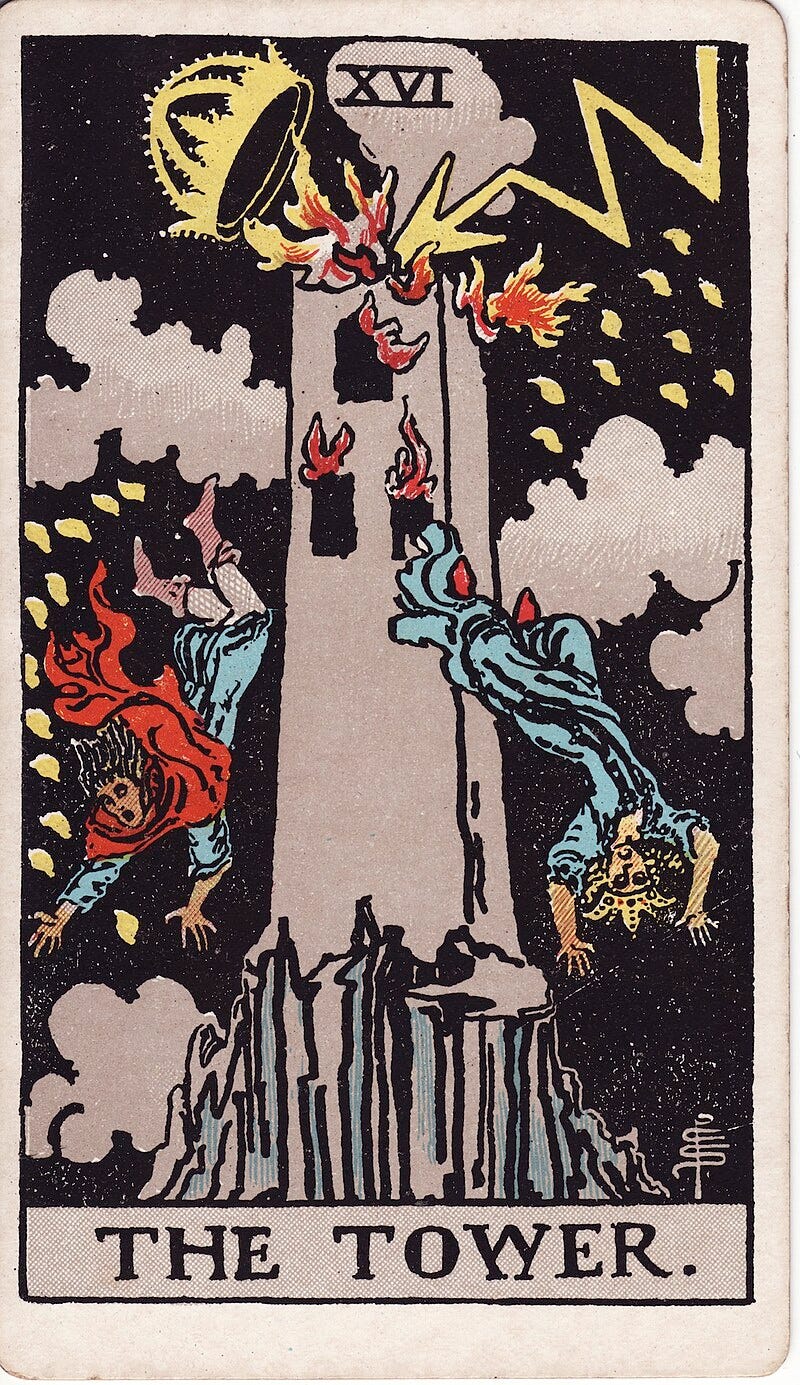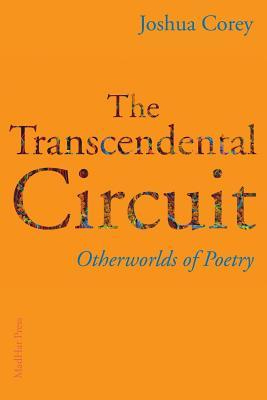“We are all out of elsewheres” writes John Pistelli in his engaging Major Arcana-tour travelogue, while on his own esteemed Substack John Ganz has a fascinating post about the grimdark future that Trump and tech bros imagine for us. According to the German historian Ganz cites, a guy named Ernst Nolte, fascism is constituted by “resistance to transcendence”: the refusal to countenance the possibility of rising above the Hobbseian all-against-all in either a practical sense (I think of Timothy Snyder’s thesis in Black Earth, according to which Hitler was incapable of imagining a green revolution that would make it possible for Germany to feed its people and thus had to launch an expansionist, exterminationist war instead) or a theoretical sense. Here’s the Nolte quote from Ganz’s post:
Theoretical transcendence may be taken to mean the reaching out of the mind beyond what exists and what can exist toward an absolute whole; in a broader sense this may be applied to all that goes beyond, that releases man from the confines of the everyday world, and which, as an "awareness of the horizon", makes it possible for him to experience the world as a whole.
All this reminds me of my own concept of the transcendental circuit, first articulated eight years and a lifetime ago in a review-essay inspired by Ben Lerner’s The Hatred of Poetry. This became the cornerstone of my collection of critical writings, The Transcendental Circuit: Otherworlds of Poetry, available wherever good books are sold (okay, you can actually only buy it from Amazon or direct from the publisher, whatever). The essay itself has dated a bit, particularly toward the end, but the core concept remains central to my idea of the central activity of human beings, which is to continually circulate between foreground and background, certainty and doubt, theory, and practice. It’s the premise of Emerson’s restless poetics, which in his writings constitutes the search for a form—the negative dialectics of the essay responsible to the energy of moods rather than to the lineaments of an argument.
Without transcendence—without any sense of the horizon—we are trapped in the vicssitudes of the moment, whipsawed by the limitations of the demagoguery-enhanced panic that is our state today. (As I put it in the old essay, in a question that no longer seems rhetorical: “Does the hatred of poetry translate, all too easily, into the poetry of hatred?”) But transcendence is not the goal: you cannot climb into a tower and pull up the ladder behind you if you expect to remain human. The impasse of small-d democratic politics comes out of a refusal to climb down from the tower with a story that ordinary people find compelling, that offers them a glimpse beyond the cramped horizon of their interests narrowly construed. The right seduces with cynicism. Denying the possibility of transcendent views or transcendent values, right-wing rhetoric turns its subjects into nihilistic pod people; having surrendered the power of judgment (because you have to judge when to shift your eye from foreground to background; it is almost literally a matter of taste) they will, as the saying goes, swallow whatever simple story gets repeated at them most often.
The Pistelli quote references the election of Pope Bob from Chicago, the first pope who knows not to put ketchup on a hot dog, and the hysterical glee with which his ascension has been greeted, and not just in my area code. Last night my buddies and I watched Conclave like so many other people have been doing, as if it were a documentary. Fuck the pope, like my wife says, and the gay-baiting, woman-dominating, child-abusing church he represents. But I do detect in all the attention he’s been getting some residual thirst for transcendence even on the part of non-Catholics: we will take our idealism wherever we can find it, now that the American civic religion has gone bankrupt. The Catholics do have great outfits, and fantastic signifiers of power poetic enough (the Sistine Chapel! Bernini’s St. Theresa! Brideshead Revisited!) to make you wonder if there just might be something meaningful behind the smells and bells. Ross Douthat says something to the effect that Catholicism is the last branch of Christianity to take itself seriously, and the only branch in which an intellectual can feel at home. In his case it seems to have inspired a psychopathic serenity. You can’t live in the tower, bro! Climb up for the view, yes, but if you don’t come down on your own to muddle through with the rest of us, you’ll be coming down sooner or later in a more precipitous fashion. God is not mocked.

What is to be done? Search me, but today I am happy to be rereading Adam Phillips’ Paris Review interview, in which he characterizes the writing he most values (by Freud, Emerson, and others) as “evocative rather than informative.” I take this literally: when we immerse ourselves in reading we become receptive to new voices—we are called out, summoned to attend to our own aliveness, to the uncertainty that terrifies too many people into handing their minds over to propaganda. A reader subjects themself to the voice of the poet or novelist, rubs their own voice against the stranger voice, and comes out a little bit different than they went in. This is what I find liberatory about the writings of the high modernists, in spite of their sometimes fishy (fashy) politics. They are attentive to the voices in our heads and how those voices are conjured from others’ voices; they bring the dialogism of the social novel inside the heads of their characters, who become some of the most lovable in literature out of the pattern of their incoherence. Stephen Dedalus, with all his young man’s arrogant self-loathing, might yet be gentled by life into a true humanist like Leopold Bloom, who for all his faults counsels wisely that hatred is no life for human beings and that love is the opposite of hatred. Lily Briscoe triumphs over the dead angel in the house, Mrs. Ramsay, and achieves in art her transcendental vision. Yet it is the love and sacrifice of Mrs. Ramsay, who gives everything to composing the home in which Lily has been a guest, that makes that vision possible—that makes it moving.
Lily marks her canvas, Bloom and Stephen have a piss in Bloom’s backyard. The lighthouse, that equivocal symbol of transcendence, is at last achieved by Mrs. Ramsay’s son James, but it no longer means to him what it meant when he was six. Bring your spirit down.1 We have to climb up, if only so that we can come down again. And if the message we climbed up for is changed or broken in the course of our descent—the moment we meet others, when the monologue becomes a dialogue—well, that just might be for the best.





